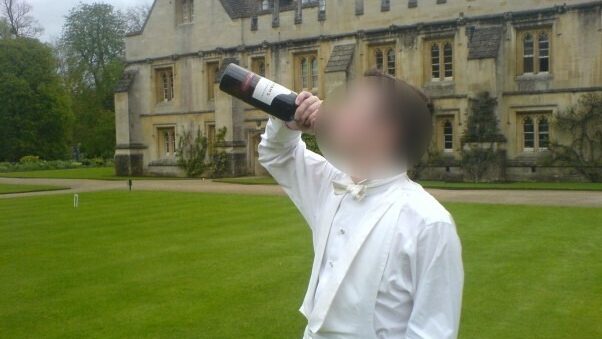
Oxford’s Threat to the Nation
The hinterland between self-belief and entitlement is a dangerous place.
I spent the better part of the first decade of my adult professional life trying to chip away at the cheap veneer of expectation that my partial entry into Britain’s elite that the latter years of my education tarred me with. Along with thirteen of the seventeen postwar prime ministers, I had the dubious honour of attending the University of Oxford.
For the sake of completeness, of the other four, three had no university education at all – Major, Callaghan, Churchill – and one attended The University of Edinburgh. (Gordon Brown really was doomed from the start.) Whichever major party wins the next UK General Election, the streak will continue to number 18. In total, Oxford has has 30 Prime Ministers and Cambridge 14. And none since WWII, with ‘I agree with’ Nick Clegg the closest that the latter has come
This came up the other night in discussion with a friend of mine, a brilliant computer scientist and entrepreneur who followed a degree from Oxford with a PhD from Cambridge and has an instinctive feel for both places. For most normal folks, discussing the fundamental differences between two institutions that are usually bundled into the glottal ‘Oxbridge’ portmanteau feels like a vanity of infinitesimally small differences, but in this case it might matter. Their cabinets are stacked with comrades and rivals that they collected through their years of drinking societies and student debating, particularly the Oxford Union. And though Cambridge has its own near-identical private debating club, it does not occupy the same place in the formation of the national politic, and nor it threaten to, as the chumocracy that runs the Oxford Union perennially does, to buy its opposite number.
This is not an argument for Oxonian superiority. In a Learian inversion, whilst Oxford appears to be a production line for foolish kings, Cambridge has a fierce reputation for wise jesters. Stephen Fry, Hugh Laurie, most of Monty Python, The Goodies, Stephen Mangan, Richard Ayoade, Richard Osman, Sue Perkins, Mel Giedroyc, Jimmy Carr and Alexander Armstrong to name a few. Oxford? Rowan Atkinson, Stewart Lee and Al ‘the pub landlord’ Murray. Not a bad list, but like Cambridge Prime Ministers, it’s a faraway second place. It helps that the Footlights, Cambridge’s comedy revue has a self-fulfilling reputation as the place to hone your skills for a certain kind of cerebral British wit, but I do look at the list and wonder how many of these comedians would have made a better Prime Minister than Liz Truss? They certainly all would have been funnier than Boris Johnson.
I went to go and see the Oxford Revue once, and was indeed like Boris in Peppa Pig land avant la lettre. Self-referential in-jokes made members of one self-regarding socialite clique sending up another, it was more like a stage version of ‘John Evelyn’ the biting and bitchy weekly gossip column that runs in one of Oxford’s two student newspaper, publishing salacious in-jokes about a revolving cast 30-or so gilded undergrads each week which are understood by only around 300-or so self selecting oxford ‘socialites’ from an undergrad student body of around 3,300 each year.
A few of these gags I understood, as for a while I floated around the outer orbits of that sybaritic solar system, pulled in by my friendship with a course-mate with a nepotistic cache of cultural capital (not that he actively exploited it, people found out and then sought him out). It would not last as it’s hard to maintain a champagne-and-cocaine student lifestyle on a Cava-and-ProPlus budget, but for a while I flew close to that sun, raving in a barn surrounded by private security at Piers Gav or dancing to reggae at house parties in Jericho with jangly, expensive posh girls wearing visible hip bones in Chloe dresses. Oh to be young and rich. As the sun rose over the canal and the minicab driver that doubled up as ‘executive’ drug dealer arrived, I felt like we were the centre of the world. I wonder if they were doing the same over at the other place in the fens. Maybe, but somehow I doubt it.
I have been trying to disabuse myself of that notion ever since. But many have not. Even the sporting rivalry was characterised by pantomimic arrogance. Whilst every Oxford team seemed to have a cartoonish hatred of Cambridge, complete with saucy chants and the the evergreen dismissive hoot of ‘Shoooooo’, the Tabs I met had a desire to win well and a healthy respect for their opponents, and often just got on with doing so. And maybe that’s the difference, Oxonions ‘Shooooo’, Cantabrigians ‘do’. I wonder sometimes if I had gone to Cambridge if I would have achieved more and worried less, rather than worrying more about what I’d be seen to have achieved.
If that is at the core of the small differences between these seemingly twinned institutions, then it is a chasm in terms of its implication for Britain. More than ever we need competence, clarity and practical action, not posturing and points-scoring. In an age obsessed by ‘culture’ in our workplaces and institutions, it’s probably time to examine the two most disproportionately influential institutional cultures in our nation.